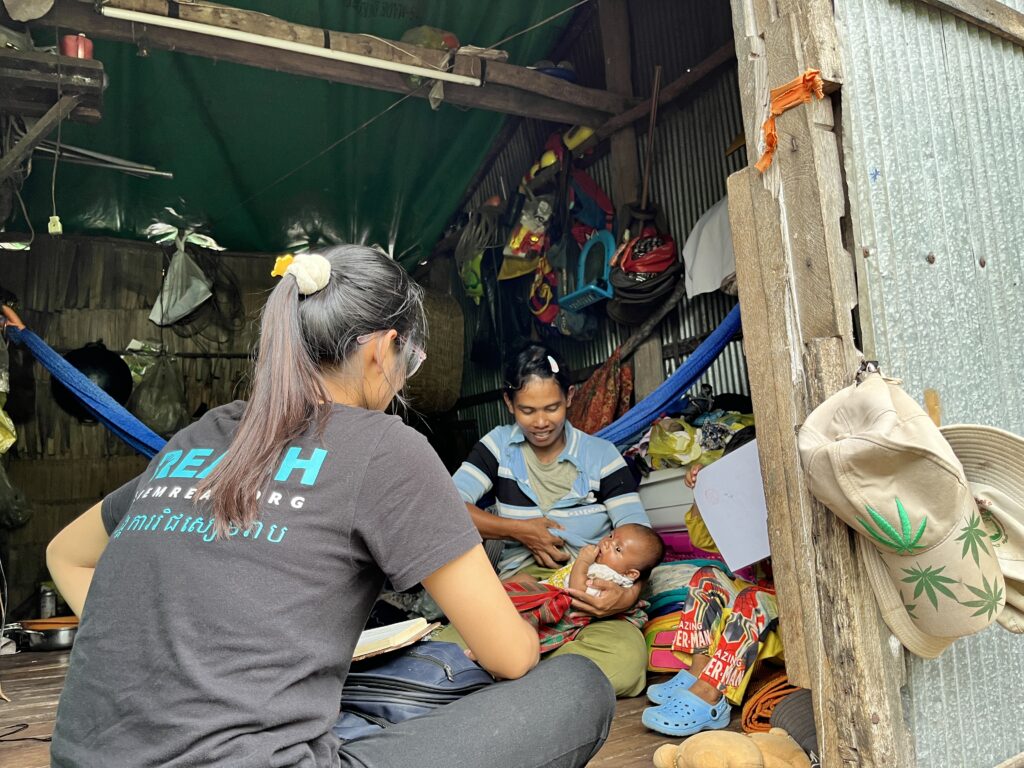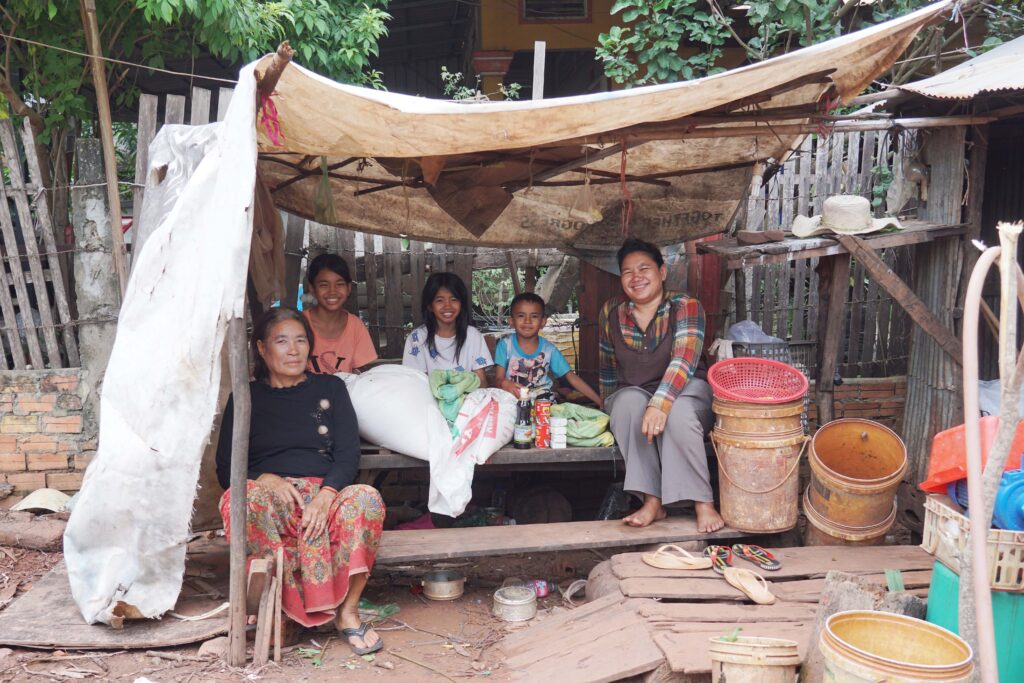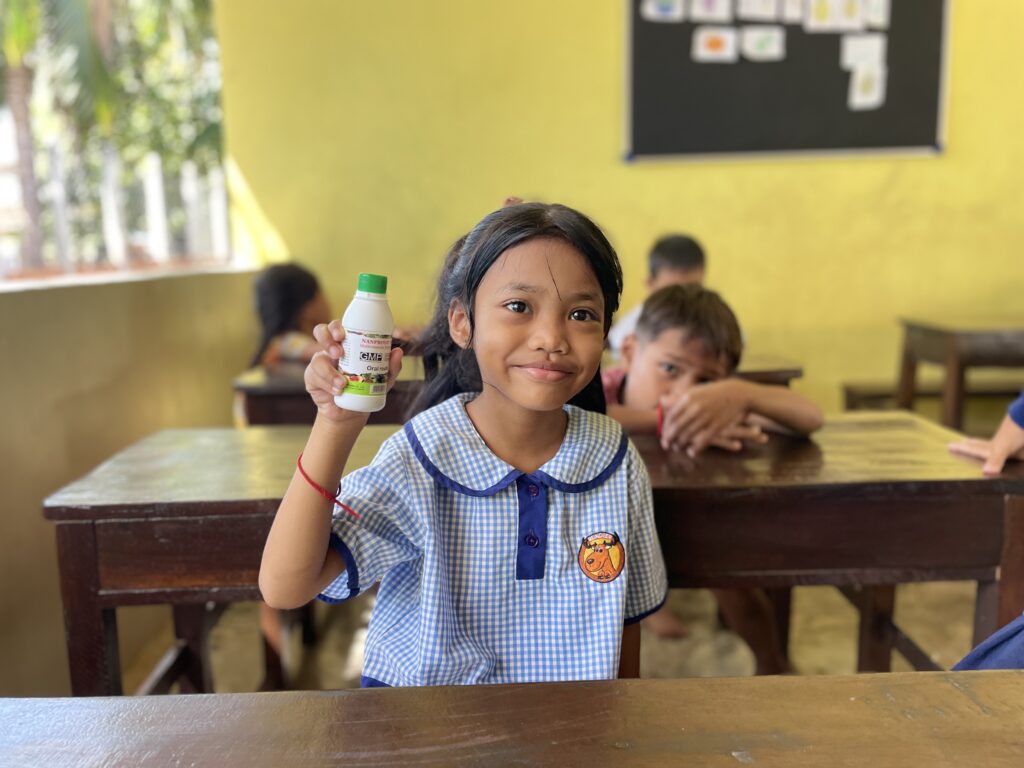Beyond all the layers of a child’s academic success lies a simple yet crucial concept: well-fed children have higher opportunities to excel in school.
While society and schooling systems often focus on cognitive abilities and analytical skills, the foundation for learning starts with ensuring that children are nourished both physically and mentally.
In a 2022 UNICEF report, an estimated 15.9% of children worldwide are living in extreme poverty. This translates to approximately 333 million children surviving on less than $2.15 per day, with 829 million living on less than $3.65, and a shocking 1.43 billion trying to make ends meet with less than $6.85 daily.

These figures show that there are millions of children facing hunger and surviving on extremely poor diets, which significantly impacts their educational performance and engagement. Adequate nutrition is pivotal for children’s cognitive development, concentration in class, social skills and overall well-being. For those struggling with poverty and malnutrition, the ability to focus, comprehend new topics, and actively participate in learning activities becomes severely challenging.
As a result, the cycle of poverty persists, stopping a huge percentage of future generations from reaching their full potential and contributing meaningfully to society.
In Cambodia, 4,454 children die every year due to malnutrition. With a poor intake of sufficient vitamins, minerals and proteins, mothers can’t breastfeed their babies for longer than 2 months. Consequentially, their children are stunted, wasting and severely underweight throughout their first years of life.
Nutrition plays a critical role in the health of pregnant women and their babies. Adequate nutrition during pregnancy supports healthy fetal growth, enhances the mother’s strength and overall health, and reduces the risk of childbirth and postnatal complications.

However, impoverished women who lack access to sufficient and nutritious food often face severe consequences. Malnutrition can lead to increased risks of complications during pregnancy and childbirth, low birth weight, and delayed development in infants. Insufficient nutrition can impair the immune system of both mother and child, leaving them more vulnerable to diseases and health issues.
At REACH, we recognise the importance of maternal nutrition through our Family Planning Project to support mothers throughout every stage of their pregnancy. This initiative ensures that expectant mothers receive extra food to support their well-being and that of their babies.
In the lead-up to childbirth, the pregnant mothers we support receive take-home meals from our kitchen during their entire pregnancy. To ensure they are healthy and able to breastfeed, they then receive ongoing additional support for up to 3 months post-birth so our mothers are empowered to have the best possible start for their children and lay the foundation for a healthier future for themselves and their families.
How nutrition directly impacts a child’s education.
A positive attitude towards school and learning is intertwined with physical health, a balanced diet and living conditions to lay the groundwork for academic success. In Cambodia, student perceptions were measured through a survey for the data to be used in the PISA-D National Report to reflect the relationship between education, health and the development of the country.
Cambodian students from different socioeconomic backgrounds took a detailed survey on the matter to assess their attitudes towards school and reveal insights into their perspectives. A balanced diet rich in essential nutrients is vital for cognitive development, memory retention, and overall mental acuity. The connection between nutrition and brain function underscores the profound impact of food choices.
The following chart presents key figures illustrating the impact of nutrition on education in Cambodia:

In Cambodia, where food insecurity is prevalent, the impact on students’ health and well-being is profound. Dietary patterns among impoverished communities are shaped by several characteristics, including inexpensive foods that provide minimal nutritional value but are filling and readily available.
Perhaps the most common component of an impoverished family diet is plain white rice. Cheap and versatile, rice serves as a primary source of calories for millions of people. While it offers energy, it lacks essential nutrients, contributing to dietary deficiencies and health problems in the long term. To this, many families living in harsh conditions will add bone soups, made by boiling leftover bones. Herbs and spices are often used to add flavour without the need for expensive ingredients, but they do little to address nutritional deficiencies.
Sugar and fried foods have become a consistent presence in the diets of impoverished families. Cheap and easily accessible, sugary treats offer a quick source of energy and provide a temporary sensation of fullness. However, excessive sugar consumption contributes to a range of health issues, including obesity, diabetes, cardiovascular health and dental problems from a very early age.
To address the complex interplay of health, nutrition, and education, we need to understand the multiple levels connecting each aspect. Education must prioritize holistic approaches to integrate health and well-being into the educational agenda. Nutrition programs and mental health support services can mitigate the effects of malnutrition and promote positive learning environments.
The PISA-D study revealed that 34% of students in the country have experienced hunger at least once a week due to insufficient food, with 6% facing near-daily hunger. Students in this situation most commonly had high levels of school absences and dropouts due to sickness or lack of energy.

This same study shows that in Cambodia, educational challenges extend beyond proficiency levels among students. It’s crucial to understand that the dropout rate is high when students reach the age of 15 due to the hardship of maintaining their studies, paying for their extra classes, buying the necessary materials for school and any other related expenses. Many either never enrolled, dropped out, or are in lower grades. Less than 2% of 15-year-old students in the country have shown advanced levels of knowledge and skills.
At REACH, our core focus revolves around education, nutrition, and health, as we recognise the interconnectedness of these vital aspects and their profound impact on individual well-being and community development. By prioritising education, access to nutritious food, and promoting overall health and wellness through our 12 integrated programs, REACH aims to create a holistic approach that supports individuals in reaching their full potential.
Every day at REACH, children from ages 4 to 16 receive nutritious meals on a daily basis to ensure their engagement in school and ease the economic pressure on their families. Our dedicated kitchen team ensures that every meal is a source of excitement for the children by changing the menu daily, offering a variety of nutrients to support their growth and development.
After each meal, children receive a multivitamin supplement to complement their vitamin intake and further boost their immune system.

Recognizing the significant impact of nutrition on learning, adequate food intake plays a crucial role in enhancing students’ focus and dedication to their studies. Food insecurity poses a significant threat to the health and overall well-being of students.
Each day, the REACH team sees the powerful transformation sparked by a basic necessity: a meal. Children who initially enter our program withdrawn, disengaged, low on energy, and even displaying aggressive behaviours, gradually evolve into joyful, healthier students.
It wasn’t just hunger that was satiated; it was a hunger for connection, for understanding, for the simple joy of being cared for.
Access to food is life-changing for hundreds of children, enabling them to attend school and pursue a better future.
Double Your REACH campaign
This year, our Double Your REACH campaign is taking a turn. Our goal? To raise enough funds to cover two years of meal plans for the children and families enrolled in our programs. At REACH, we understand the critical role that nutrition plays in the lives of our community. It’s not just about filling their stomachs; it’s about nourishing their bodies and minds, providing them with the fuel they need to learn, grow, and thrive.
Our campaign kicked off on June 1st, with 8 incredible Match Grant Heroes and 8 Sidekicks onboard. Thanks to their generosity, all donations will be matched dollar for dollar, up to $100,000 AUD. Our Heroes are dedicated to ensuring that REACH kids stay in school by raising funds to provide 120,000 meals and hygiene supplies for the next two years!
With your support, we can make this vision a reality. Together, we can provide a lifeline for hundreds of children, empowering them to break free from the cycle of poverty and reach their full potential.
Join us in our Double Your REACH campaign and help us make a lasting difference in the lives of Cambodian children. Your generosity has the power to change lives and create a brighter future for generations to come.
Click here to donate so more impoverished children can have better futures.

